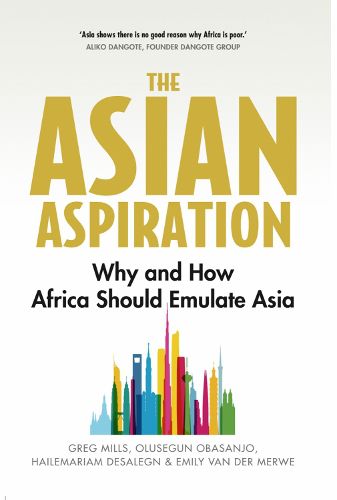Readings Newsletter
Become a Readings Member to make your shopping experience even easier.
Sign in or sign up for free!
You’re not far away from qualifying for FREE standard shipping within Australia
You’ve qualified for FREE standard shipping within Australia
The cart is loading…






In 1960, the GDP per capita of Southeast Asian countries was nearly half of that of Africa. By 1986 the gap had closed and today the trend is reversed, with more than half of the world’s poorest now living in sub Saharan Africa.
Why has Asia developed while Africa lagged? The Asian Aspiration chronicles the stories of explosive growth and changing fortunes: the leaders, events and policy choices that lifted a billion people out of abject poverty within a single generation, the largest such shift in human history.
The relevance of Asia’s example comes as Africa is facing a population
boom, which can either lead to crisis or prosperity, and as Asia is again transforming, this time out of low-cost manufacturing into hi-tech, leaving a void that is Africa’s for the taking. Far from the optimistic determinism of ‘Africa Rising’, this book calls for unprecedented pragmatism in the pursuit of African success.
$9.00 standard shipping within Australia
FREE standard shipping within Australia for orders over $100.00
Express & International shipping calculated at checkout
In 1960, the GDP per capita of Southeast Asian countries was nearly half of that of Africa. By 1986 the gap had closed and today the trend is reversed, with more than half of the world’s poorest now living in sub Saharan Africa.
Why has Asia developed while Africa lagged? The Asian Aspiration chronicles the stories of explosive growth and changing fortunes: the leaders, events and policy choices that lifted a billion people out of abject poverty within a single generation, the largest such shift in human history.
The relevance of Asia’s example comes as Africa is facing a population
boom, which can either lead to crisis or prosperity, and as Asia is again transforming, this time out of low-cost manufacturing into hi-tech, leaving a void that is Africa’s for the taking. Far from the optimistic determinism of ‘Africa Rising’, this book calls for unprecedented pragmatism in the pursuit of African success.